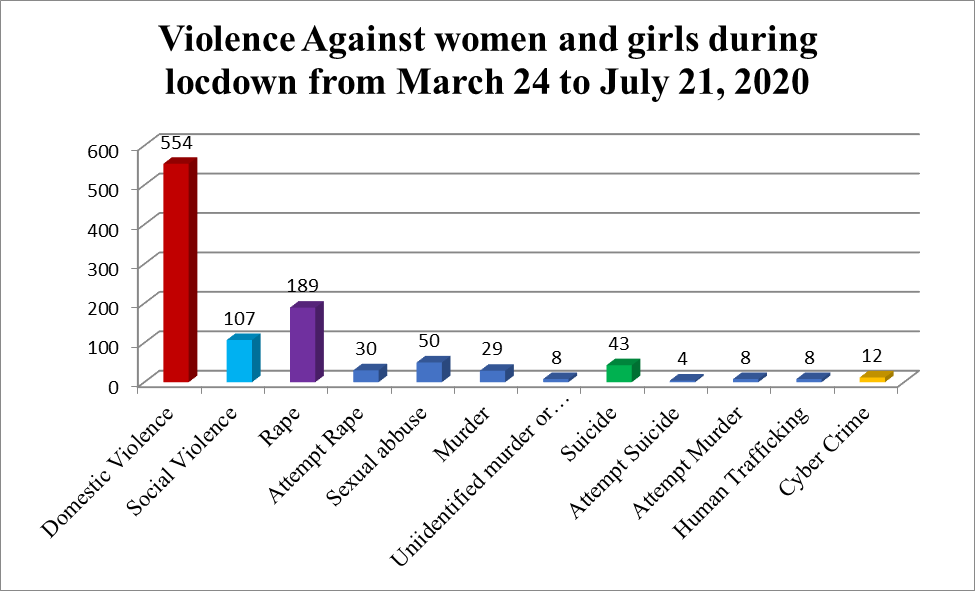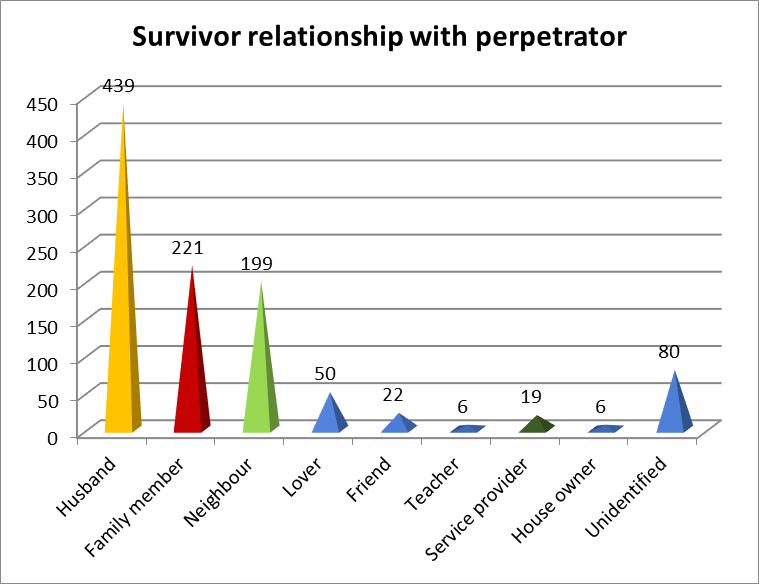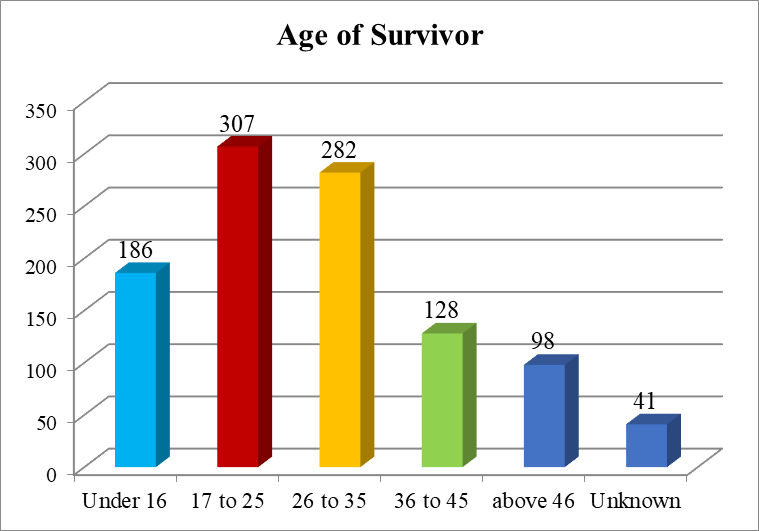.png)
Press Release
1042 cases of violence against women and girls recorded during the period from March 24-July 21, 2020 of the lockdown
When the lockdown was first instituted on March 24, 2020, there were already fears that cases of gender-based violence would rise, given similar experiences around the world. Now, more than three months into the lockdown, it appears those fears have been realized. In the last four months since the lockdown, WOREC has recorded 1042 cases of violence against women and girls (March 24 to July 21, 2020) from 64 districts.

These 1042 cases of incidents have been documented through 3 hotlines run by WOREC, psychosocial counsellors, Women Human Rights Defenders, and community-based organizations. Among these, 170 cases were collected from different media.
From the cases recorded by WOREC during the period from March 24-July 21, 2020, 554 cases are related to domestic violence. This indicates that many women and children are stuck in their homes with their abusers during the prohibitory orders, making them more vulnerable to domestic violence. Analyzing these 554 cases of domestic violence further shows that 339 survivors of the reported cases were physically abused, whereas 116 survivors were mentally abused mainly due to the reasons related to dowry, for giving birth to a daughter, and inability to conceive or give birth.
Along with that, 99 survivors were left fending for themselves and their children after their family members kicked them out of the house and abandoned them without any legal documents such as the birth certificate and citizenship of their children.

The data recorded also shows that a staggering 439 cases of domestic violence were committed by the husband, while in 221 cases, perpetrators are family members.
Thus, the documented cases suggest the home, which is supposed to be the safest place for women and girls, can be one of the most unsafe places if the closest relatives-husbands, fathers, in-laws and family members-turn into abusers.
It is of great concern that such mass effort to keep the virus from spreading has put many women and girls at risk of gender-based violence (GBV) as they are trapped in a house with their abusers. Along with that, preventive confinement measures i.e. maintaining the social distancing, imposing restrictions on movement and ‘stay at home’ protocol, have only shattered support networks, making it far more difficult for survivors to get help or escape.
Data on GBV further suggests that domestic violence is acting as an opportunistic infection, flourishing in the environment created by the pandemic.
Likewise, the recorded data shows that in 199 cases of violence against women and girls have been committed by neighbours, 50 by boyfriends, 22 by friends, 19 by the service providers, 6 by house owners and 6 by teachers while in 80 cases the identity of the perpetrators has not been disclosed.
Along with that, WOREC recorded 189 cases of rape, 30 cases of attempt to rape, 29 cases of murder, 6 cases of attempt to murder, 93 cases of social violence, 50 cases of sexual abuse, 43 cases of suicide, 4 cases of trafficking, 4 cases of attempt to suicide and 12 cases of cybercrime.

The age analysis of these documented cases shows that women and girls age 17-25 years have been most affected, where 307 women and girls fall under this age group. Similarly, 282 women are within the age of 26-35 and 186 are below the age of 16. In the same way, there are 123 survivors belong to the age group of 36-45, there are 14 survivors above the age of 46
The age analysis of these documented cases shows that women and girls aged 17-25 years have been most affected, where 64 women and girls fall under this age group. Similarly, 52 women and girls are within the age group of 26-35, while 22 survivors belong to 36-45. In the same way, there are 14 survivors above the age of 46, while the cases that involve 96 survivors below the age of 16 have been documented.
Looking at the cases that came in direct contact with WOREC, it has been found that women and girls are reluctant to speak out in many cases of violence since the perpetrators are family members. The lockdown and fears of the Covid-19 have even impacted women’s avenues of redress as many support and rescue organizations are closed, courts have not yet resumed, and the police are preoccupied with other matters. Furthermore, many women cannot even leave home to stay elsewhere or file a police report as there is no transportation. As a result, many women and girls have neither registered complaints at the police station nor have given complaints to any authorities for support.
Violence against women and girls is the shadow pandemic growing amidst the Covid-19 crisis, and we need a collective effort to stop it. For this, the government should address this problem by bridging the gaps to ensure that prevention measures and essential services are maintained and implemented during the crisis
Recommendations
Thank You.
Lubha Raj Neupane
Executive Director, WOREC